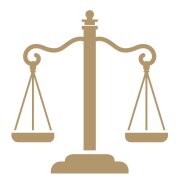Best Collaborative Law Lawyers in Athens
Share your needs with us, get contacted by law firms.
Free. Takes 2 min.
Free Guide to Hiring a Family Lawyer
List of the best lawyers in Athens, Greece
About Collaborative Law in Athens, Greece
Collaborative law in Athens, Greece refers to a voluntary legal process enabling couples who have decided to separate or end their marriage to work with their lawyers and, on occasion, other family professionals in order to avoid the uncertain outcome of a court and to achieve a settlement that best meets the specific needs of both parties and their children without the underlying threat of litigation. This method of dispute resolution can yield more controlled, peaceful, and mutually beneficial solutions for involved parties.
Why You May Need a Lawyer
You might require a lawyer in collaborative law situations including but not limited to, divorce proceedings, child custody disputes, prenuptial agreements, distribution of marital property, and spousal support. A professional Guided by the principles of collaborative law would provide you with needed advice, guide negotiation, also mitigating the emotional strain associated with dispute resolution.
Local Laws Overview
While general principles of collaborative law universally apply, specific legal techniques and strategies in Athens primarily adhere to Greece's Civil Code where family law resides. In cases like divorce, both parties have rights towards communal property while each party retains rights toward personal property. Child custody is directed towards the best interest of the child. Prenuptial agreements are not expressly discussed in Greek law, but they are not prohibited and can be drawn up with aid from an attorney.
Frequently Asked Questions
What is the benefit of Collaborative Law?
The benefit lies in the less adversarial and more cooperative approach it takes towards dispute resolution. This approach allows for a more open discussion between parties involved and can often result in an amicable resolution, thereby preserving relationships and the well-being of any children involved.
Can I use Collaborative Law for Child Custody issues?
Absolutely, Collaborative law is a favorable approach in settling disputes pertaining to child custody. By keeping the process out of the courtroom, it creates a conducive environment for parents to discuss and agree upon decisions that uphold the best interests of the child.
How long does a Collaborative Law process take?
The process duration varies depending on the complexity of the dispute and the willingness of the parties involved to reach a resolution. It can potentially be a quicker solution than going through the court system.
What if we can’t agree on terms in the Collaborative Law process?
If each party's negotiations reach a deadlock, you may need to resort to mediation or arbitration services or ultimately take the case to court for a traditional litigation process.
Can a lawyer represent both parties in Collaborative Law?
Each party typically retains their own attorney to ensure fair and unbiased representation during the collaborative law process.
Additional Resources
For more information, consider reaching out organizations such as the International Academy of Collaborative Professionals (IACP), The Athens Bar Association, or the local family courts. Websites such as lawyersgreece.eu offer a wealth of online articles and resources to guide you.
Next Steps
If you are considering utilizing collaborative law for your legal matter, the next step would be to consult with a collaborative lawyer in Athens. Ensure you choose a lawyer who is specially trained in collaborative law principles to ensure the best outcome for your case. Analyze your situation, discuss possible outcomes and lay out a plan for proceeding.
Lawzana helps you find the best lawyers and law firms in Athens through a curated and pre-screened list of qualified legal professionals. Our platform offers rankings and detailed profiles of attorneys and law firms, allowing you to compare based on practice areas, including Collaborative Law, experience, and client feedback.
Each profile includes a description of the firm's areas of practice, client reviews, team members and partners, year of establishment, spoken languages, office locations, contact information, social media presence, and any published articles or resources. Most firms on our platform speak English and are experienced in both local and international legal matters.
Get a quote from top-rated law firms in Athens, Greece — quickly, securely, and without unnecessary hassle.
Disclaimer:
The information provided on this page is for general informational purposes only and does not constitute legal advice. While we strive to ensure the accuracy and relevance of the content, legal information may change over time, and interpretations of the law can vary. You should always consult with a qualified legal professional for advice specific to your situation.
We disclaim all liability for actions taken or not taken based on the content of this page. If you believe any information is incorrect or outdated, please contact us, and we will review and update it where appropriate.
















